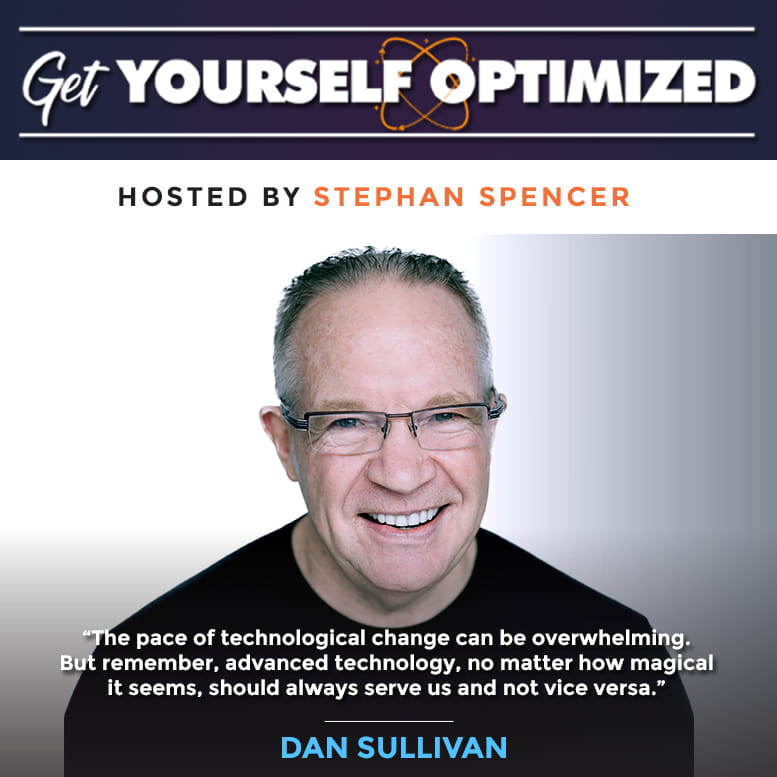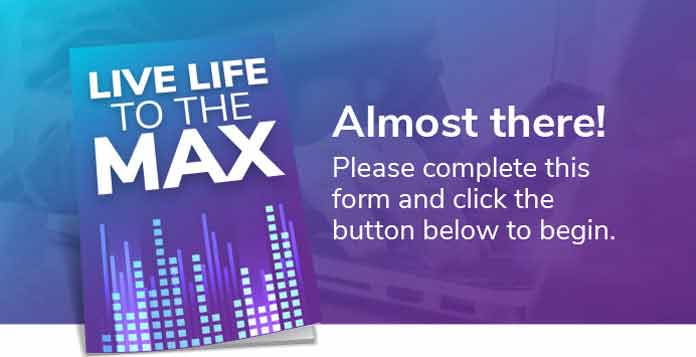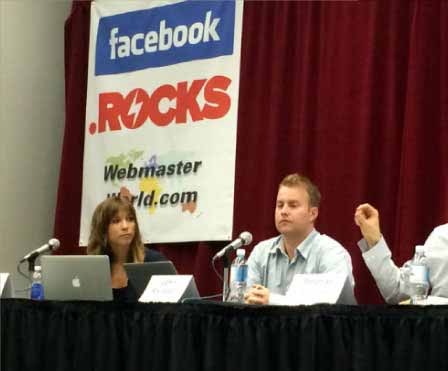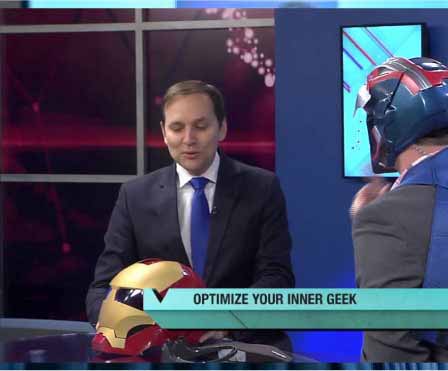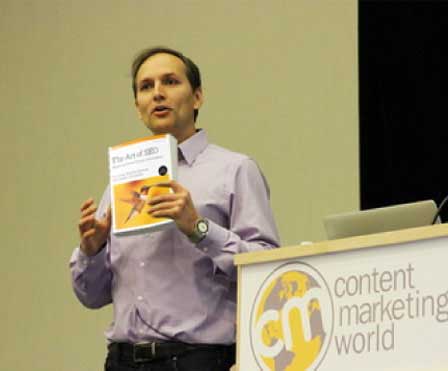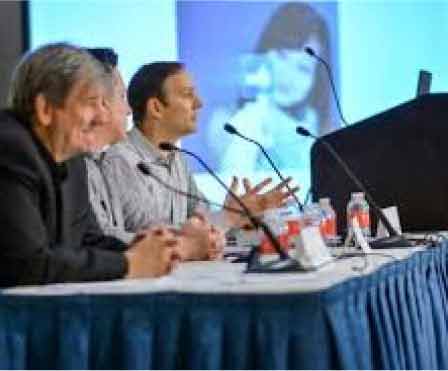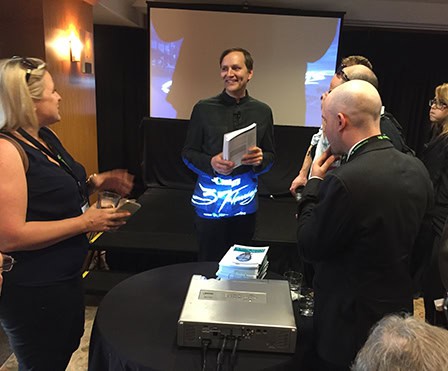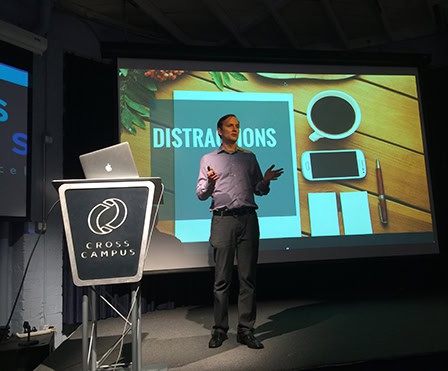In This Episode
- [00:39]Stephan introduces Laura Roeder, a business coach and the founder and CEO of MeetEdgar and Paperbell.
- [05:02]Laura shares how she sets her boundaries to keep thriving businesses.
- [11:45]Laura and Stephan both agree with seeing everything as a learning opportunity, especially with today’s available resources.
- [17:17]What sparked for Laura to become a social media and online marketing expert?
- [23:46]Where does Laura get her inspiration and ideas for her startups and projects?
- [30:21]Stephan shares an example of Gary Keller’s concept of The ONE Thing.
- [36:02]Laura describes the pros and cons of not having a board of directors for a company.
- [41:06]Stephan highly recommends SparkToro, a new market research tool that helps you discover any audience’s sources of influence: who+what they follow, visit, read, watch, and listen to.
- [48:00]Stephan shares a cool idea of creating an appointment funnel, a platform where people can watch some of your videos to learn more about you before the appointment.
- [53:15]Follow Laura Roeder on her social media accounts, and visit her website lauraroeder.com to learn more about her and her software companies, MeetEdgar and Paperbell.
Laura, it’s so great to have you on the show.
Yes, thank you. We got to talk for your other podcast a few years ago. So it’s good to be on this one. Two years ago has been ages for me; I’ve started new businesses. I’ve had more kids. So it’s good to have a new conversation.
And how do you juggle all that? Because you’re still involved with MeetEdgar, now you’ve got a new startup Paperbell, you have kids, you’ve got all this crazy stuff with Coronavirus, everybody working from home, then getting schooling from home, having a hard time finding babysitters, and all that sort of stuff. It’s certainly an interesting time.
It’s a lot. MeetEdgar, I’m not super involved with it. My role as founder, which can mean a million different things, but we have a president and an executive team that runs the company. Normally, I talk to the president of the company, either every week or every other week. I do check in regularly, but that’s all I do for MeetEdgar. It is kind of to advise her, and give her my opinion when she wants it. So MeetEdgar takes up very little time; I’m spending my day to day on Paperbell, which is a tool for coaches who manage their business, make their contracts, their scheduling, their payments, and manage everything for an online coaching business. And that business is kind of the opposite of MeetEdgar and that I’m doing everything myself. It’s just my husband and me and sometimes some freelancers or VAs, but I’m building the website, writing all the marketing copy, doing it all. It’s kind of fun to have that contrast of one business that I’m very high level involved in, and the other business where I’m, if there’s a typo on the website, I’m fixing it. If someone writes an email, I’m answering it. And then, I also have a two-year-old and a five-year-old, and I work, I guess, probably like 25 hours a week, something like that. So I’m not working full-time.
If you’re running an online business, you need to get your hands dirty and your mind more open. Share on XHow long have you been doing that? The 25 hours a week thing.
So I’ve always had little kids since I’ve been involved in my software startups. Before that, I did some online courses and social media advising, and some other businesses. I was actually pregnant when I launched MeetEdgar, so I took maternity leave in the first year, and then I was part-time after that. So it’s been sort of all different configurations, but it hasn’t been as full-time. I’ve been part-time, I’ve been off for leave, and then I had my daughter in 2018, and we launched Paperbell in 2020. So maybe there was a point at like, six months, or something where I was working full-time. I know a lot of founders, full-time for them can mean 80 hours a week, full-time for me, meant, okay, I have to go into an office for a lot of the day for five days a week. But yeah, that hasn’t been the norm for me.
Wow, that’s impressive that you’re able to put such strong boundaries around your time and your schedule. How do you manage that? How do you make that work and have a business that can still grow and thrive?
I do have very strong boundaries around my schedule. I realized it recently when I was interviewing someone for doing some freelance work at Paperbell, and we were talking about a time to meet. And I think she was actually–it sounds funny to me, but she was a bit surprised by how clear I was on when I could and couldn’t meet, which to me just seems like kind of a no brainer thing. I can, at times, I’m available, and I’m not available at any other time. But a lot of people do leave their calendar just completely open. And obviously, they do it from a good intention, right? They’re trying to be accommodating; they’re trying to be friendly. Of course, we always have to be aware of the other person’s needs. But something I mentioned to you before we started the call. I live in the UK, which means I have very little overlap with the East Coast of the US. I have no overlap with the West Coast of the US. So I’ve just decided for me and my life right now. I don’t work in the evening. So there are a lot of opportunities that I miss out on. Like, I do love to do podcasts, but I’ll only do them during the day.
I do have very strong boundaries around my schedule.
And in my day, actually, most days at 2:30 pm UK time, which means it hasn’t started yet in the US. Because my kids get home from school at three and then I’m watching them. So I just tell people, I know that this might not work for you. Maybe live on the east coast and get up super early. If you do, then great, no hard feelings. If it doesn’t, but this is when I record podcasts. And there’s a lot of people that I just can’t do podcasts with. But if you’re clear about that, no one is upset about it, right? I’m not like tricking anyone or wasting a lot of their time at the last minute saying, “No, you have to get up at midnight.” I’m like, “Listen if it works for you, great. If it doesn’t, great.” And we all have a finite amount of time, right? And we all can’t pursue every opportunity. So I think it’s just deliberate in which opportunities you’re going to pursue. And then, of course, there’s the whole topic that other people can also do things in your business, which is incredibly helpful. If you don’t want to spend all your time. You can also throw in other people’s time.
Right. So you could have someone on your team, like your president at MeetEdgar, do the interviews for social media stuff and the coaching stuff. I guess you just start delegating once you build up those team members.
I don’t do any coaching if that’s what you mean.
No, I mean like, so your coaching platform business for Paperbell, you’re gonna hold off on taking those US time zone podcast interviews, and you’re not going to be able to delegate that until you have some team members, kind of like the president that you have at MeetEdgar.
Exactly. Right now, there’s no one else on the team to do them. Yes, maybe at some point, there’ll be other people to represent the company. But for now, we can do interviews with people who are in Europe, like yourself, there’s a lot of people outside of America. It’s not the only place in the world, right? And actually, I think that’s a great example of how we often limit ourselves without realizing it because that’s something that I was doing for a while. I was feeling kind of upset about this, thinking like, “Okay, I know, the podcasts are a great way for me to promote and grow my businesses. But yeah, most of them and the biggest ones are in America.” And then I’m just like, “No, they’re not all in America. There’s still plenty of others.” And I realized that I had created this kind of artificial box for myself; the podcasts are in America box, which just wasn’t true.

Yeah. And I admit I have a lot of FOMO when it comes to things like opportunities to market myself and the business to get on stages, virtual stages these days, and even to just participate in masterminds and seminars and workshops. For example, last week, I stayed up till three in the morning, two days in a row for Genius Network, because I’m part of that mastermind. And then immediately right after the next day, I was up till 5 AM for the biohacking conference that Dave Asprey does, again, gone virtual, which was fantastic, great content. But I could have watched the recordings afterward. I didn’t have to be there live for it, it wouldn’t have been as amazing, but I would have gotten maybe 80% or 85% of the value. I have that boundary problem that you don’t seem to have.
Well, everyone gets to decide, I think that’s the way to look at it. Like it’s not bad to stay up until 5 AM for something you’re super excited about. You just want it to be your choice, and you want to know, “Okay, maybe I’m going to make some sacrifices the next day, but I’m excited about attending this conference live.” So it’s not that there’s a right or wrong way to do it. It’s just you do want to make sure that you’re checking in with yourself for what you want instead of thinking, “Oh, everything cool is in America, so I just have to stay up all night if I want to learn anything for my business or attend anything interesting,” because that’s just not true.
Yeah. We’ve been at this for a long time. Since you got started so young, you were in junior high. How old were you when you started building websites?
Be deliberate in which opportunities you’re going to pursue.
I guess I would have been like 11 or 12. I was the first generation to get AOL in the fifth grade. As soon as I discovered that, I discovered the whole world of; they weren’t called blogs then but they were a thing on AOL. Just all the different ways that people kind of express themselves online, whether that was through websites, or emails, or the little, whatever they called the little community spaces on AOL. I was always very involved and very interested in all that stuff. Of course, at the time, if you wanted to be an active part of the internet, you had to build things yourself; there was no web-flow back then. If you wanted to make a website, you had to learn some basic coding. Unfortunately, my coding knowledge is still sort of a circa 1998 HTML and progress. I don’t know any PHP. I don’t know anything more complicated. But I think it’s still kind of analogous; the tools have changed. But if you want to run an online business, you need to get your hands dirty.
This is something that I see a lot, because a lot of our customers at Paperbell or MeetEdgar, sometimes they’re people who consider themselves not so tech-savvy, and they get a little nervous when they see a tool, and they’re like, “Oh, it’s gonna be hard to use.” And again, it’s just a mindset shift, something I always remind people is that none of us were born knowing anything, right? You’re an SEO expert; when you were born, you knew the same amount about SEO as every single person on the planet, right? You chose to put a lot of time building that expertise through learning through hands-on work. That’s a choice that we all have. And if you want to be successful in an online business, you can’t be scared of tech, right? Tech is a lot easier now, thankfully, but it’s just a part of what you’re going to encounter. And if you have a positive attitude, like, okay, maybe I didn’t grow up doing this stuff, that doesn’t matter. Everyone has to learn it at some point, whether they’re 11 or whether they’re 65. It doesn’t matter. We’re all learning new things all the time.
Well, that’s great. And it’s such a refreshing and inspiring way to look at life. Like everything’s an opportunity, everything is a learning opportunity chance. And so, if you don’t know anything about PHP, and you want to solve a certain problem, you might play around with some online tutorials or something to solve your problem. I just noticed, speaking of learning stuff and things like SEO, when I was doing my research about you, I Googled you, of course, and you don’t have a knowledge panel. That’s that thing on the right-hand side that shows up for a lot of organizations and more notable people.
None of us were born knowing anything. Everyone has to learn something new at some point. Whether you’re 11 or 65, it doesn't matter. We're learning new things all the time. Share on XSo that might be something you explore, right? And that’s not super complicated. It’s adding some schema markup. So it would be the same as the attribute you add to the schema on your homepage, or on your about page, like, these are all my social profiles on Twitter, and Instagram, and so forth. This is my Wikipedia. I have if you’re in Wikipedia, this is my Google Books listing and my Crunchbase, listing, and so forth. And then, you might trigger the knowledge panel to get created. And it’s not complicated, and you just need to know, this is something I want. So then, you gotta go about taking some proactive action to make that happen.
See, I didn’t know it was called the Knowledge Panel. Learning live on this call, and now I can Google it. And that’s like, that’s what’s so cool, right? You can just go anything and figure out how to do anything. And now, I’m going to the Google knowledge panel. I’m going to keep Google if I come up with a term I don’t understand, just Google that one, and I’ll just keep learning about it. And that’s how you get it done.
That’s awesome. And when you Google it, also add the word sameAs. I know, it sounds like it’s two words, but it’s actually one because that’s an attribute in the schema markup. And that will show you the right way to code it. It’s just some pretty simple, straightforward HTML coding. That can allow you to add all those different social profiles and your Crunchbase listing and all that stuff.
And if anyone listening wants to add me to Wikipedia, I’m not on Wikipedia. Now I would like to be. So if you’re a Wikipedia editor listening, throw me in there.
Everything is a learning opportunity.
That would be pretty cool. So let’s talk about how you ended up just starting down that path as an 11 or 12-year-old. Was there a particular mentor, parent, or sibling, or friend in school who got you inspired to start going down that path? Or was it just all internally motivated? Was it that you were kind of bored at home and you’re an only child?
Like, for me, that’s basically what happened. I’m an only child. I love figuring stuff out. I love tinkering. And so as a little kid, I started programming in basic and then I taught myself assembly language, so as coding in hexadecimal. This was back in the old old days when people were using BBS to dial in with their modems to these online communities. But they weren’t like all connected, they were just on one person’s server. So I wrote my own BBS from scratch when I was a kid. It was pretty fun. So yeah, how did you get started? What sparked this for you?
I think it’s kind of a similar story. So a lot of the web stuff that I did was Tori Amos fan stuff. When I was in junior high in high school, I was a big Tori Amos fan. He’s a musician for anyone who’s not familiar. It’s part of being part of that community. Just like you were saying, like, if you made your own BBS because you were interested in that social aspect and becoming a part of that community. For me, I was interested in trading fanart, connecting with other people who love Tori Amos. I did have a good friend who was also very into all the same stuff. She had the website that she created, and I had mine, I ran an e-postcard webring, we used to have little eposts, we would make like fanart and put on your postcards and had webring of all the other e-postcard sites. So it all I think it all came out of a desire just for connection. And that’s just how the connection naturally happened. You need to learn how to do these things if you want to connect. So that made me very tech-savvy.
Then a transition after that was into online courses. So I was also very early on online courses. I guess my first online course would have been in 2007, I believe. At that time, when you did online courses, you were just making it yourself, often in WordPress, instead of using the amazing tools we have now like Teachable. So the same thing, like I found this channel to share with people, I was teaching about social media marketing and online marketing. And so if you wanted to share that it made sense to do an online course. And if you wanted to do an online course, you have to figure out how to deliver an online course, which isn’t any different than it is today. Now you might have to watch a helpful video about Teachable, then you had to figure out what plugins you needed or needed to program yourself or whatever, to create it. But I think the theme is like that, whether you’re doing a personal project or a business, you just kind of have to keep your own goal, your outcome in mind. And then it’s just like, step by step.

Okay, I listen to this podcast. I heard about a knowledge panel like now I’m gonna figure that out. Okay, listen to podcasts. And I heard about an online course, oh, maybe I could do an online course. Oh, she’s got something called Teachable. I’m gonna look that up. You just follow these little breadcrumbs, and I mean, that’s how everything gets done. And I think people have this fantasy, looking at someone that they consider very successful. I was looking at something from like to me, someone who’s very successful is like the president of Shopify. Shopify is a company that I think has done cool things. That guy must be amazing. He’s the president of Shopify. But I know that the way that he’s figured everything out is just the same as me. He doesn’t have any kind of superhuman capacity that I don’t have. He’s had experiences, and he Googles stuff, he asks people questions, like, whatever it is that you want to do in your life. I mean, this is how it happens, just piece by piece.
Yeah. So that sounds like there are two key components to success. And whatever your endeavor is, desire, like you have a goal and you want it and then the curiosity to be open to learning and inspired and excited, especially by that desire that fuels that. So those kind of are the one-two punch to success.
Yeah, and I think not getting discouraged. I think it’s very easy to hear something like, and some people might listen to me like, “Uh, knowledge panel, that’s another thing I haven’t heard of, I’ll never catch up. I’ll never figure all this stuff out.” And if you have that defeatist attitude, it’s going to be hard to make progress. Because when you come across something new, you view that as a step back. So if you can change your mindset to view that as a step for like, ooh, something new, this is going to be a cool opportunity for me, this is going to be something new to learn about. And then I think that’s how you keep going. And that’s just a muscle to practice and a choice you can make, your outlook on things.
Whether you’re doing a personal project or a business, you have to keep your own goal and your outcome in mind.
And another key component is that you had a passion in the form of special interest in your case, it was Tori Amos. And that reminds me of my oldest daughter, who started her journey at 14 into online marketing, SEO, blogging, all that. And her passion was Neopets, which was very popular back in the day. It was a virtual pet site owned by Nickelodeon, and you could feed virtual food to the virtual pet and give a virtual pet to the virtual pet and play all these games that are Neopoints. And then using those Neopoints for virtual toys for the virtual pet. It was kind of silly when you hear it described, but it was very addicting to tens of millions of children and many adults too.
I spoke at a conference once, and I was mentioning this, and a lady came up afterward made sure to correct me and say, “You know what, a lot of adults like Neopets as well, and I’m one of them.” I’m like, “Okay, I’ll keep that in mind next time I mention Neopets.” So you start with something that you’re super passionate about not just to make money, but because you love it, and you want to share it and create a community or be part of a community. And that also fuels your motivation and so forth to get to that goal that you’re after.
I’m a big believer in doing what is fun, genuinely interesting, and exciting for you. So, as I mentioned, I love being on podcasts. I love chatting with people. It’s not stressful for me. It’s not something that I feel like I have to prepare for. I just show up and talk. Other people told me they get value from listening to them. So I pursue that, and that’s an easy yes for me. I know some people like my husband. It is his absolute worst nightmare to be on video or even audio in any way. I was doing one podcast, and they’re like, “Oh, you and your husband worked together. It’d be great to have him on as well.” So I told him, like, “It’s just audio, and I’m going to do 90% of the talking to want to pop on with me?” and he’s like, “Absolutely not.”
Anything that I would like to do less, right? And not everyone has to do that. He has the things that he loves to do. And so I think sometimes we put a lot of pressure on ourselves to follow a certain mold. Of course, I’m not saying never do anything new, like maybe you’re scared of podcasts, but you’re also sort of excited to try it. Go for it. I’m not saying you’re never going to be scared or anxious about anything new. But I think you can make so much progress just following your genuine passion and your genuine excitement, whether that’s attending this conference, or being on this podcast, or writing a blog post or writing a book, whatever it is, like, don’t be afraid to just let yourself have fun with what you’re doing.
If you have that defeatist attitude, it’s going to be so hard to progress. Share on X
How do you get these ideas for startups or projects? Are you just waiting for the inspiration to arrive? Are you doing research trying to figure out where market opportunities exist? Like you’ve got what? Four companies, three or four companies? Maybe it’s four under your belt now. Is that right?
Yeah. Well, I had one that we shut down like six months after its launch. I’ve had a lot of different experiences. I heard a quote recently from either Warren Buffett or Charlie Munger that was talking about how they choose to invest, and they said the investment should be a no brainer. And I thought that sounds simple, but I thought a man like that’s really good advice that it should be a no brainer. And they were talking about how no brainers are incredibly hard to find. They have to eliminate 99% of the deals the companies that they come across because they’re not no brainers. And the way I think of starting a new company is kind of similar, and a no brainer doesn’t mean that you know that it will be successful. Maybe other people know.
I never know if I think it’s going to be successful, but I never really know until customers give me money. That’s how I know that it’s successful. But to me, a no brainer is like with Paperbell, and like okay, I know that online coaching is huge and is going to get more huge. I mean, we started building it before Coronavirus, but it’s like you don’t need Coronavirus to tell you that the internet is kind of a big thing. People are going to keep working online and being on the internet. So it’s like, okay, there’s a huge amount of coaches out there. And I also know that the tools out there for coaches are not very good or not as good as a lot of industries because I tried all the tools. And I just saw firsthand like they didn’t have full functionality, or they were buggy or whatever. And there’s an audience that I know how to reach because we already have a lot of coaches in our community for MeetEdgar. It’s just always a world that I’ve sort of been a part of. So put those things together, I know the audience is there, I know how to reach the audience, I know that the audience needs a better solution, and I know how to build it; that’s a no brainer.
You can make so much progress just following your genuine passion and your genuine excitement.
To me, as much as you can get to a no brainer. That doesn’t mean it was certain to work. It hasn’t worked, it’s still new, but we’ve proven it, we have a good amount of paying customers. I felt like MeetEdgar was the same thing. When we launched MeetEdgar, it’s like, okay, we know people want to use a social media tool, we know that existing tools don’t have this functionality that we know is helpful and people will use. That’s a no brainer. And then to compare that with my company that didn’t work out, which was like a DevOps alerting tool. That one was much more like, okay, we do see a problem here, but we don’t know how to reach this audience. Because my experience is like me personally reaching out to the audience. I don’t know anything about DevOps. I can’t talk at a DevOps conference. I can talk at a conference for coaches about how to run your business or how to run your social media. That one, we just didn’t have all the pieces. And I also like to run bootstrap businesses. And we came to find out that software was not one that you could build in a bootstrapped model. It was a really expensive software to build. So that one did not have all the elements that made it a success for me. For someone else who was in the DevOps world who wanted to raise a bunch of money and loved that, I think it could have been a big success for them.
Makes sense. You know, when you were talking about Charlie Munger’s approach to being a no brainer, it reminded me of another author, I think, who said, “It’s either a hell yes, or it’s a no.” I don’t remember who said that.
There we go, thank you. So that’s stuck with me, too. And I do think of that before I take on yet another project.

I think it’s the same. I do it because no one is short of ideas. I have so many ideas for local businesses that would not make any money, but I think it would be really fun to run, but it doesn’t line up with what I want in my life, which is like, I love to have an online business that can be bootstrapped, that can be low overhead. So yeah, I think you have to filter like, okay, there’s always a lot of opportunities, what is a no brainer or what is hell yes? For me, I don’t think that ideas have some sort of objective like this is a good idea and this one’s a bad idea. I think it completely depends on the person and how they are going to execute it. And if it lines up with their values, their boundaries, what they want in their life.
Now, another thing that I remember about Warren Buffett, in particular, is that he is good at killing off projects or initiatives, and he has a process that he recommends where you write down, just brainstorm all the different things that you’re working on, all the projects. And you might have 25 projects, and then his approach is to put a line through 20 of them, leaving only five. And those are the five that you get to work on. And I think there are even more distinctions around which ones, like you, have to pick the top two and work on those first or whatever, but all the other 20 you can’t work on until you finish the five.
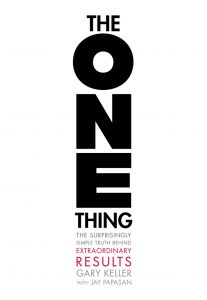
It makes a lot of sense, right? Because our time is one of our most limited resources. I mean, it’s a similar idea to the book, The ONE Thing, where they talk about prioritizing the one most important thing, which is also a really valuable idea. I can’t say that I do this anymore, but for a while, I organized when I was using Asana. I made myself a little custom thing where it said, “The One Thing,” and then below that said, “The distractions.” So I have my one thing, and then all my other desks had to be in the distraction category. And it was a way to remind me that if I’m not working on my one thing, I am choosing to work on a distraction. Maybe tomorrow, it won’t be a distraction, it’ll be the one thing or after I’ve completed my one thing, and it’s not a distraction, but for now, it’s a distraction. And that’s a very difficult thing to do to have that discipline to constantly be looking at. Is this my one thing? Is this my top five? My 20%? However you want to look at it, it’s all the same idea of, “Yeah, we know that we have some tasks, some projects that have outsized impact compared to everything else on our list.”
What’s that question that Gary Keller has? What is the one thing that makes everything… Do you know?
Yeah. It’s what makes everything else easier or unnecessary?
That’s pretty much it. That’s a great book, by the way, I highly recommend it. And so I’ll give you a real-world example right now. And I have struggled with this. I have so many things on the go at any one moment; it’s pretty crazy. So I am looking for and hiring a bookkeeper and also an integrator, which is a fancy word for a COO. But an integrator is a particular type of COO, who is kind of familiar and trained in the Entrepreneurial Operating System, or EOS. Gino Wickman was one of the guests on this podcast, and he’s the creator of EOS. And it’s just a profound, powerful system for organizing your business. So me as the visionary at the top, I don’t have to worry about all the stuff the integrator does, which would be the person directly under me who is making sure that systems are put into place, and then the best systems are being used. And systems that are inefficient or ineffective are being replaced. And the right people are in the right seats on the bus. And so that is an essential role.
Incidentally, listeners, if you think you fit that position, you’d like to be my number two, please contact me. But this is a situation I’m facing right now. I can’t see putting one or the other aside to work on the one hire. I guess I could make a case for focusing on the integrator first, but the bookkeeper is kind of urgent. I need to get that solved ASAP. I have this kind of internal fight with myself all the time about which things I’m going to work on because they’re all important. And I get it; there is one thing that makes everything else unnecessary or much easier. However, when the rubber meets the road, I can’t just say I’m only going to work on the integrator and the heck with hiring a bookkeeper.
Be deliberate about which opportunities you’d like to pursue. If you want to do more, it might be better to work with more people. Share on XOf course, you have to recognize that these ideas sound nice, but then when you put them in your actual workday. Of course, you literally can’t spend all day hiring an integrator, like you run out of tasks to do in a day, and obviously, there are just things like waiting for people to get back to you, blah, blah, blah. So I think that sometimes these concepts can be confusing because you’re like, “Okay, I’m only gonna work on my one thing.” Like, “Wait a minute, well, okay, I worked on that for an hour. I sort of ran out of stuff on that. Am I just supposed to make up a bunch of ineffective stuff to do that sort of goes towards my one thing?” So the way I think of it is just that you have a top priority for every day, right? And sometimes it’s just a top priority for a week because there’s only so much work you can do every week on that thing, but that you are making sure that every day or every week, you’re plugging away at that thing.
And another thing that they say I love, The ONE thing on the podcast too. And another idea from the one thing is that only once you’ve completed your one thing have you earned the right to do anything else? So the guy who hosts the podcast is always shouting at people in a friendly way like, “You haven’t earned the right to email your bookkeeper yet? Have you earned that, right? No.” I like to think of it that way. I know whether or not I prioritize my one thing that day or that week. So until I’ve done that, I have not earned the right to do all those other little tasks that I want to do. That’s like a phrase that I can use to remind myself to keep staying focused.
I like that a lot. It’s your North Star, and if you aren’t oriented towards that, you’re just kind of, I don’t know, just floating around in space, doing whatever the nearest most on fire thing is.
Right.
Have a top priority for a week because there’s only so much work you can do every week on that thing.
Now, do you have advisors or mentors that help you with these businesses, especially when you’re doing a new business? I’d imagine this is kind of a new market for you creating a platform for coaches. Are you building up an advisory board? Do you have a mentor? Like, how is that working?
It’s all very informal for me. So I’ve been lucky enough to make a lot of intelligent friends who are entrepreneurs and who run businesses. So I don’t have a board for either of my companies, which a lot of people say, it’s a terrible idea. And you should always have a board, but I don’t. And I don’t have someone who I would say like, “Yes, that one person is my mentor.” But I do have a lot of great friends and a lot of great experience. So it’s a mix. I used to go to conferences regularly and see people and kind of catch up and chat. That doesn’t happen anymore. So now, it’s sometimes I like to leave voice messages for people on WhatsApp, and that’s like a great way to communicate asynchronously, or sometimes we will schedule a call. Sometimes if I have a specific question, I’ll send an email to a few friends with that specific question saying, what’s your take on this one thing? And then I’m in some Slack groups for entrepreneurs. I love chatting with entrepreneurs. It’s one of my favorite things. So it’s not hard for me to stay connected with people because it’s something I enjoy.
That’s awesome. So you don’t have a board for either company and is there some sort of kind of governance requirements that you’re missing out on? Or are you somehow more liable, potentially, or more susceptible to bad things happening because you don’t have a board? Like an actual board of directors, not a board of advisors?
Yeah. So I own 100% of MeetEdgar, and yes, I own 100% of Paperbell too. I run them with my husband, but legally I own 100%. So I think the downside of not having a board is more just not having more people moving towards that same goal. Because as far as legal stuff, I mean, I have legal companies set up, there’s some separation between the company and me. But I think what you lose with a board is that a board is a group of people that are all, theoretically, and usually working towards the same goal. So if you want to sell your company for x amount of dollars, then obviously they’re very motivated to make that happen, too. If you have a big partner that you want to create a deal with, they’re very motivated to help you make that happen. When I think about the downsides, I think that’s what I imagine. I haven’t lived the alternate life where I have a board, but I imagine that’s kind of what I’ve missed out on.
Yeah, I can tell you that. It’s not all it’s cracked up to be. I don’t have a board myself, and I did with my previous agency that I had sold in 2010. And it was great until it wasn’t because there’s alignment until there isn’t alignment. And once I got separated from my then-wife, and then we got divorced, I became a minority shareholder in my own business. That was not awesome. And the two seats that I had on the board because my then-wife and myself both had seats became like, “Oh, I have one seat on a five-person board. I just lost control of my company. I think I’m out.” And so then that precipitated like, alright, we should probably sell the company, because I was going to leave it no matter what. So be careful because you might not end up being in control of your own company if you set up all this great governance and everything that everybody tells you is the right thing to do.
Your outlook on life is a muscle to practice and a choice you can make. Share on XYeah, and I mean, I think, yes, it’s two sides of the same coin, right? The upsides and downsides. So one great thing about owning 100% of my businesses is that I can do whatever I want. So I mean, financially, it’s great. It’s like, do I want to take out some money to remodel a bathroom? I can just do that. I don’t have to ask anyone. It doesn’t have to be like, okay, I only get a certain distribution of profit. And obviously, you don’t want to go crazy doing these things. I mean, honestly, I never do. I’m very organized about the money in my business. But it’s nice to know that it’s there and that I can do whatever I want with it. And same with decisions, right? I mean, what I love about it is, I love not having the pressure to grow at all costs, which is very, very common with funded startups.
That’s kind of the attitude, grow as quickly as you can. And it’s very important to me not to run a stressful business. The cool thing about my businesses is we don’t have clients, we have customers, but we have thousands of customers that pay a little bit, not a few clients that pay a lot. So everything is self-paced. For Paperbell this week, we released a new feature, contract signing, yesterday, and I don’t have like the landing page up for contract signing; the homepage doesn’t reflect it yet. That bugs me, but it doesn’t matter at all. Whenever I add that to the homepage when I do, it’s going to be this week, but if it was a month from now, the world would not burn. It would be a little slower for people to know about it. It’s not a huge deal at the end of the day. So I love having that freedom to be able to say, “Yeah, I’m going at this pace right now. And that’s fine with me.”

Yeah. That reminds me of my co-author on The Art of SEO on the first two editions was Rand Fishkin. And Rand had a terrible time. He wrote a tell-all book about it called Lost and Founder, which regaled the reader through these horrible travails, dealing with venture capitalists who had invested in his business and how they essentially ruined the business from his perspective and certainly ruined his enjoyment of it. And so he ended up leaving and starting another startup, which, incidentally, SparkToro is amazing. Have you checked out that tool?
No, I read about it, but I haven’t been inside myself.
Okay, well, you got to check it out. Amazingly, what it does is you put in a keyword, or a competitor’s social account, or a competitor’s website URL, or your own, and it will pull together an audience of people who are following that account or visiting that website, or subscribing to that YouTube channel. And show you all the podcasts, YouTube channels, social accounts, and websites that that audience consumes. It’s amazingly cool. So let’s say you wanted to get on more podcasts that were in Europe, and you wanted to see some other very successful coaches out there and kind of service providers to coaches where are they getting on other podcasts and YouTube channels and all that. You just put in one of those competitors. Todd Herman, for example, look at Todd Herman and see what his audience is also subscribed to and following and visiting. Really cool.
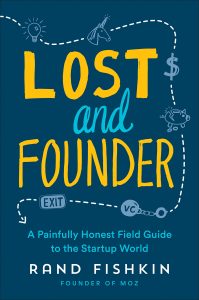
Rand needs to just take this clip and just put it on his homepage.
Oh, and the pricing, he cut by 75% or something like that. It’s a trial period. It’s kind of an experiment, this new pricing, but if you go to his pricing page, you’ll see it’s like $50 a month, instead of $200, or whatever it was before.
This is like, “But wait, there’s more!”
I know I’m selling this. And I get no kickbacks. It’s cool though I highly recommend it. You should tell your team MeetEdgar to look into it too because you could analyze what Hootsuite is doing and Buffer doing and whoever else the competitors are. Which incidentally, they’re nowhere as good as you guys. MeetEdgar is amazing. I love that tool. I’m so happy that we have that. We tried Hootsuite, we tried several other platforms, but MeetEdgar is awesome.
Yeah, it’s fun getting to use it for Paperbell and be like, “I would pay money for this.”
Now speaking of MeetEdgar, how did you guys decide to go up against these kinds of big incumbents like Hootsuite because it seemed like David going after Goliath sort of situation? Were you scared, or were you like, “No, these guys are nowhere near as good as what we could be, let’s do it?”
Yeah, so Buffer and Hootsuite both existed when we launched, we weren’t the first social media tool out there. But I’m of that mindset that a crowded market can be a really good thing. And what’s great about an existing market or a crowded market is that people already know it’s a thing. It actually can be much easier to get people to switch from another tool because they’re like, “Okay, I’m someone who buys a social media tool that’s a need that I know that I have.” Or as I’ve seen this challenge with Paperbell, we’re not a first in the category, but it’s a new category. Most coaches are not already using a tool like us, maybe they’re using a scheduling tool, but that’s it. They’re not using somebody who does their scheduling and manages events, and everything else. And it is a bit harder to one, explain what we do, and two now you’re convincing people that they have to add this whole other category of software to their business.
Where if someone’s already using Hootsuite, we’re like, “Hey, obviously you know you need a social media tool, you’ve already bought one. We have a social media tool that keeps a library of all your content that can repurpose all your content. Everything’s category-based; you can get the right mix of different categories.” We can just explain why it’s better. And I think that’s often an easier way to sell. So yeah, when we launched, I wasn’t scared because we did and still do have something that’s just kind of an innately different approach for social media marketing, which is a much more organized, automated repurposing kind of approach than Buffer or Hootsuite has. And we also knew that they couldn’t just copy it because it is an innately different workflow, which is why they haven’t just copied it. Buffer, for a while, actually did beta with similar functionality, but they found that you can’t just kind of like plop it on top; they found that they would have had to change the whole way that people use their tool, and they didn’t understandably want to change everything about their tool.
We have had knockoffs since we launched, newer companies that have copied what we’ve done, and which can just happen to anyone, but that’s why I wasn’t scared to go into a crowded industry. I felt confident that there was a room. And also, what I see over and over again, is that the bigger companies always go out of the market. That’s just kind of like the SaaS playbook is that they go more and more enterprise, which you do see with Buffer focusing more on their larger business plans. You see what Hootsuite, Hootsuite for years now, does not care about their entrepreneur customers. They’re focused on their enterprise customers; it’s just the strategic path they’ve taken with their business. So that’s something else that we’ve done differently. What MeetEdgar is doing differently and Paperbell as well, is focused on that. When I say small business, a lot of our customers are a solopreneur, one person, freelancer, like a really small type of business, and those are the customers we love and that we stay focused on, and I knew that that would be a difference as well.
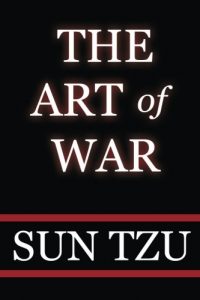
Right. And it’s such a great way to look at things that you have these nuggets, these pearls of wisdom that you can share with the world. It doesn’t have to be a one-off where I’ve got this great quote that I love from The Art of War is one that comes to mind at the top of my head, “Tactics without strategy is the noise before defeat.” I love that quote. And say that I wanted to reuse that quote more than once on my social platforms, your platform is built to repurpose that very well and say, “Well, I want to drop this, X number of times,” or in these certain weeks of the coming months, rather than just a one-off kind of a flash in the pan and then oh, now I got to think of another quote. It’s one of my favorites from another book. Really good.
Yeah.
So one more thought for you, and I’m curious if you’re building out functionality for this, or maybe you’ll be inspired to after hearing this. I learned from John Schumacher, who is in the JVMM group that I’m in, Joint Venture Mastermind. It’s cool, run by Dov Gordon. And he talked about creating an appointment funnel, so not just having a calendar like Calendly or Acuity or ScheduleOnce I think they’ve changed their name to OnceHub or something like that. I used ScheduleOnce, and then I switched to Acuity, which is a really good platform, by the way. But just having a calendar isn’t enough; you want to have a funnel and then get them to Netflix your content before the appointment. So that was cool. Like if they binge-watch four or five of your videos and learn all this cool stuff, and then they show up, they’ve pretty much sold themselves. So that’s a cool idea like he was doing it in tools like, maybe it was Infusionsoft and Ontraport, or whatever. Those are not easy tools for the typical small business kind of solopreneur coach; that’s your target market. So maybe having some functionality like that would be a cool idea.
Yeah, I think it’s a really interesting idea. And it’s kind of a whole side that we haven’t gotten to yet. I mean, Paperbell now is largely focused on your paying clients as opposed to your leads. And like your leads, and your prospects do come in largely because a lot of coaches do free discovery calls, which they’re using Paperbell to set up their free discovery calls. But yeah, everything right now, in our first year, is kind of optimized towards serving those paying customers. But yeah, I think there’s a whole other side for us to explore in the future, which is helping coaches, turn those discovery calls into paying customers, and all the different ways that we can automate that make their life easier.
Tactics without strategy is the noise before defeat.
And also to educate them to not just give away a free session, as most of them do. Like, Oh, this is a taste of what you would get by working with me. No, the way to sell is to stretch the gap between where they are and where they’d like to be like, accentuate the pain of that gap between the current state and the end state. And that’s what the discovery or strategy call is supposed to be for not like, “Oh, I’ll only solve some of your problems.” And now you’re making the pain go away, so now you’re not motivated. Okay, so this was fabulous, a lot of fun, and a lot of inspiration and insight. Now, what would you recommend our listeners do to kind of either uplevel themselves, or their business or their social media or their work-life balance? Like, give them one thing, one resource tool place to go for the next step now that they’ve gotten all this inspiration.
Well, a common theme in my company is adding more ease to your life. I’m such a big believer in having more ease, having more freedom, and that is the motivator for me and the common thread with MeetEdgar and Paperbell. They do different things. But at the end of the day, what they do is free up your time because they allow the software to do things that software can do, right? Some things humans are great at like this, the talking, the inspiring, software is terrible at, and humans are great at. But like, sending an update to Twitter or sending an email after someone schedules an appointment, like let the software do that. There is no reason for a human to do that. So yeah, at MeetEdgar, right now, we have a free trial. At Paperbell, we have a freemium plan where you can get just a full-featured free account to use for your first client.
I think both of those are great tools. But I think in general, I think a lot of people would think it sounds funny because they would say, “Oh, there’s so many tools out there these days.” I think that most entrepreneurs have still very much under optimized software, and how much software can help them and are still just like wasting their time on a lot of busy work and manual work every week that software can do. So whether it’s like my companies and my tools, or maybe there’s something different for your industry that you want to check out. But it’s one of those things where it’s like, if you just have a week, to really deep dive and research like what software exists that I don’t know about? What are these tasks that I’m doing that a tool can do for me? I mean, you would save so much time over the next year just spending a week to get that dialed in.
Yeah, I agree. And I can’t imagine a world without Asana and Time Doctor and Slack and things by Culture Code. Like I couldn’t run my business nearly as successfully or well without those tools.
Absolutely.
Awesome. And what’s your website and social so that folks can follow you and check you out online?
Yeah, so you can find me on Twitter @lkr, I’m laurakroeder on Instagram, I sometimes blog at lauraroeder.com. And my companies, you can just look up Peperbell and MeetEdgar.
Awesome. Thank you, Laura. Thank you, listeners, and take some action. Get out there and do the one thing that you need to be doing, and we’ll catch you on next week’s episode.
Important Link
- Laura Roeder
- Twitter – Laura Roeder
- Facebook – Laura Roeder
- LinkedIn – Laura Roeder
- Instagram – Laura Roeder
- MeetEdgar
- Facebook – MeetEdgar
- Twitter – MeetEdgar
- Instagram – MeetEdgar
- Pinterest – MeetEdgar
- LinkedIn – MeetEdgar
- Paperbell
- Facebook – Paperbell
- Twitter – Paperbell
- Instagram – Paperbell
- The ONE Thing
- The Art of SEO
- Lost and Founder
- The Art of War
- Laura Roeder – MS previous episode
- Gino Wickman – previous episode
- Rand Fishkin – previous episode
- Twitter – Stephan Spencer
- Instagram – Stephan Spencer
- Wikipedia – Stephan Spencer
- Crunchbase – Stephan Spencer
- Genius Network
- Dave Asprey
- Tori Amos
- WordPress
- Teachable
- Shopify
- Chloe Spencer
- Neopets
- Nickelodeon
- Warren Buffett
- Charlie Munger
- Derek Sivers
- Warren Buffett’s 5/25 Strategy
- Asana
- Gary Keller
- Entrepreneurial Operating System
- SparkToro
- Todd Herman
- Hootsuite
- Buffer
- John Schumacher
- Joint Venture Mastermind
- Dov Gordon
- Calendly
- Acuity
- ScheduleOnce
- Infusionsoft
- Ontraport
- Time Doctor
- Slack
- things by Culture Code
Checklist of Actionable Takeaways










 About Laura Roeder
About Laura Roeder
Laura Roeder is the founder of MeetEdgar, a social media automation tool designed to prevent status updates from going to waste. Laura has given talks at conferences like BlogHer and South by Southwest, and has spoken about the value of independent entrepreneurship at the White House. She’s also appeared in Forbes, Fast Company, Mashable, CNET, and other major publications.
LOVED THIS EPISODE
Please consider leaving me a review with Apple, Google or Spotify! It'll help folks discover this show and hopefully we can change more lives!
Rate and Review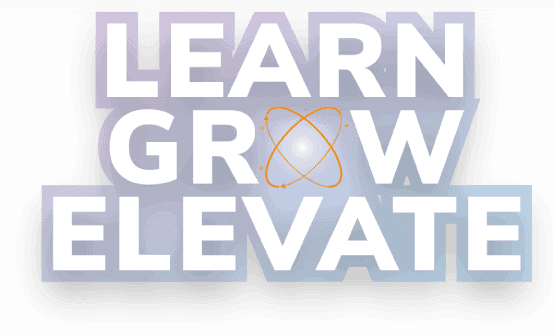
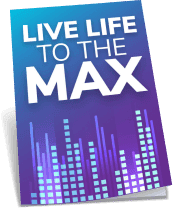
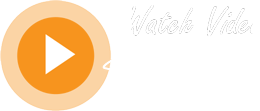






 About Laura Roeder
About Laura Roeder